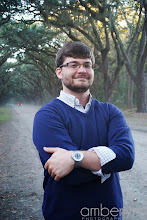Thomas Hardy’s brilliantly composed poem, “The Darkling Thrush,” explores a speaker’s view of a dark, hopeless world that is illuminated by the sweet song of a bird. Despite the harsh outlook that Hardy sets out to make in his poem, there is, for some reason, this thrush that has reason to sing. Hardy starts by illustrating the speaker’s whereabouts:
I lent upon a coppice gate
When Frost was spectre-grey
And Winter’s dregs made desolate
The weakening eye of day. (1-4)
Hardy uses words like “desolate” and “weakening” to describe the surroundings. This rather harsh vocabulary sets a mood that is rather dark and bleak; a land without much hope for the inhabitants. The next four lines contain more images of despair and hopelessness including words like “tangled,” “broken,” and “haunted” (5-7). One of the best images is of “[t]he tangled bine-stems [that] scored the sky / [l]ike strings of broken lyres,” because not only does it describe the scenery he is seeing as bleak, the image itself is of destruction and sadness (5-6). Mankind does not walk around the world, rather they “haunt” the night the night and the only thing that they can seek refuge with are “their household fires” (7-8). All over there is a sense of dreariness that hangs over this world. The next stanza does not present a much better image either.
Even the earth itself is described as a “corpse outleant” with his “crypt the cloudy canopy, / [t]he win his death lament” (9-10).The earth’s landscape is no more than a dead body trying to escape it’s coffin. The speaker’s surroundings are dead. Any sign of growth or life has seemed to vanish from thin air and, according the speaker “every spirit upon earth?” is as “fervourless as I” (15-16). The speaker is not the only one out there to be affected by the pain and death of the earth now. In this time of lifeless dark, however, there is one sign of hope.
The speaker hears the “full-hearted evensong / of joy illimited” from “an aged thrush” (19-21). This thrush, one that is “frail, gaunt and small,” has enough love for this world to sing still (21). The gloom of this trodden world is not enough to keep him down. The speaker does not see any reason why such a song should be sang at this time, but this thrush sees a lot to sing about. While the reader does not hear the song, Hardy’s juxtaposition of the response to the song and the response of the song is enough for the reader to understand just how powerful this song is. Upon hearing this song, the language of the poem drastically changes from that of despair and darkness, to words like “ecstatic,” “happy,” and “blessed” (26, 30-31).
The reader can sense the confusion from the speaker, for he just spent two stanzas describing the bleakness of where he is, yet this thrush is bold enough to sing a song full of hope. It is unclear as to whether or not the thrush’s song is enough to help the speaker, but it certainly starts the speaker wondering about the possibility of hope, even if it is not readily present.

3 comments:
Corbin,
Nice work in this post of presenting clearly and explicating thoroughly Hardy's "Darkling Thrush." I think your insights into the language and imagery of the poem are perceptive. The alleged date of composition for the poem (on the last day of the 19th century) is evocative and significant--Hardy hopes (or at least the bird seems to prophesy) that the next century will be better than the last.
I meant to mention something about that but totally forgot! Grr.
I agree with you that the bird signifies hope and light in the poem, of which the setting is full of darkness and despair. I also agree with Dr. Glance that the poem had intentions of portraying the changing of era. This is especially evident as we note the date the poem was published, December 31, 1900. It is to mark the turn of the century, in which the poem gives respect to the old era while celebrating the new with glimpse of hope for the better. Blake always had some sort of reform message in his poems, and this poem, I think, is no exception. And like all his other poems, Blake’s careful use of imagery and choice of words in the “Darkling Thrush” magnificently portrays the visual and emotional characteristics of the contrasting old and new era.
Post a Comment